Senate: Faculty Senate Executive Committee (SEC) 2018-2019
Officers
Chair: Jennifer Pinto-Martin, Nursing
Chair-elect: Steven Kimbrough, Wharton
Past Chair: Santosh Venkatesh, SEAS/ESE
Secretary: Ayelet Ruscio, SAS/Psychology
Secretary-elect: Carmen Guerra, PSOM/Medicine
Past Secretary: Cynthia Connolly, Nursing
At-Large Representatives
Emily Falk, Annenberg
Chao Guo, Social Policy & Practice
Robert Hurst, PSOM/Radiology
Hans-Peter Kohler, SAS/Sociology
Jianghong Liu, Nursing
Jennifer Lukes, SEAS/MEAM
Michael McGarvey, PSOM/Neurology
Barbara Medoff-Cooper, Nursing
Guillermo Ordonez, SAS/Economics
Anil Rustgi, PSOM/Medicine
Petra Todd, SAS/Economics
Melissa Wilde, SAS/Sociology
Assistant Professor Representatives
Amy Castro Baker, Social Policy & Practice
John Fiadjoe, PSOM/Medicine
Sharon Irving, Nursing
Penn Association of Senior and Emeritus Faculty (PASEF) Representative
Martin Pring, PSOM/Physiology
Constituency Representatives
Guobin Yang, Annenberg
Robert St. George, SAS/History
Gwendolyn DuBois Shaw, SAS/History of Art
Brian Gregory, SAS/Biology
James Petersson, SAS/Chemistry
Kathryn Hellerstein, SAS/Germanic Language and Literature
Jere Behrman, SAS/Economics
Suvir Kaul, SAS/English
Daniel Singer, SAS/Philosophy
Stephen Tinney, SAS/NELC
Mirjam Cvetic, SAS/Physics and Astronomy
Julia Lynch, SAS/Political Science
Elizabeth Brannon, SAS/Psychology
Chenoa Flippen, SAS/Sociology
Kathleen Boesze-Battaglia, Dental
Janine Remillard, GSE
John Bassani, SEAS/MEAM and ESE
Rakesh Vohra, SEAS/CIS
Franca Trubiano, Design
Eric Feldman, Law
James Palmer, PSOM/Otorhinolaryngology
Pedro Gonzalez-Alegre, PSOM/Neurology
Kenneth Margulies, PSOM/Medicine
Marilyn Schapira, PSOM Medicine
Lewis Kaplan, PSOM/Surgery
Charlene Compher, Nursing
Ezekiel Dixon-Román, Social Policy & Practice
Anna Kashina, Vet
Paula Henthorn, Vet
Eric Clemons, Wharton
Eric Orts, Wharton
Jonah Berger, Wharton
The Senate Committee on the Economic Status of the Faculty (SCESF)
Peter Cappelli, Wharton
Blanca Himes, PSOM/Biostatistics, Epidemiology, and Informatics
Sarah Kagan, Nursing
Iourii Manovskii, SAS/Economics
Pamela Sankar, PSOM/Medical Ethics and Health Policy
Herbert Smith, SAS/Sociology, Chair
Ex-Officio:
Steven Kimbrough, Wharton, Faculty Senate Chair-Elect
Jennifer Pinto-Martin, Nursing, Faculty Senate Chair
Santosh Venkatesh, Wharton, Faculty Senate Past Chair
The Senate Committee on Faculty Development, Diversity and Equity (SCFDDE)
Nelson Flores, GSE
Jorge Gálvez, PSOM/Anesthesiology and Critical Care
Carmen Guerra, PSOM/Medicine, Chair
Mauro Guillén, Wharton
Michael Jones-Correa, SAS/Political Science
Irina Marinov, SAS/Earth and Environmental Science
Kate Nathanson, PSOM/Medicine
Dagmawi Woubshet, SAS/English
Ex-Officio:
John Keene, Design, PASEF non-voting member
Steven Kimbrough, Wharton, Faculty Senate Chair-elect
Jennifer Pinto-Martin, Nursing, Faculty Senate Chair
The Senate Committee on Faculty and the Administration (SCOA)
Ryan Baker, GSE
Joel Bennett, PSOM/Medicine
Ken Drobatz, Vet
Al Filreis, SAS/English
Robert Ghrist, SAS/Mathematics, Chair
Kevin Platt, SAS/Russian and East European Studies
Talid Sinno, SEAS/CBE and MEAM
Ex-Officio:
Marshall Meyer, Wharton, PASEF non-voting member
Steven Kimbrough, Wharton, Faculty Senate Chair-elect
Jennifer Pinto-Martin, Nursing, Faculty Senate Chair
The Senate Committee on Faculty and the Academic Mission (SCOF)
William Beltran, Vet
Eric Feldman, Law
Lea Ann Matura, Nursing, Chair
Susan Sauvé Meyer, SAS/Philosophy
Mindy Schuster, PSOM/Medicine
Amy Sepinwall, Wharton
Bruce Shenker, Dental
Thomas Sollecito, Dental
Lyle Ungar, SEAS/CIS
Jonathan Zimmerman, GSE
Ex-Officio:
Steven Kimbrough, Wharton, Faculty Senate Chair-elect
Jennifer Pinto-Martin, Nursing, Faculty Senate Chair
Gino Segrè, SAS/Physics, PASEF non-voting member
The Senate Committee on Students and Educational Policy (SCSEP)
Sunday Akintoye, Dental
Lisa Lewis, Nursing
Wallis (Ty) Muhly, PSOM/Anesthesiology and Critical Care
Carol Muller, SAS/Music
Ralph Rosen, SAS/Classical Studies
Jorge Santiago-Aviles, SEAS/ESE
Dominic Sisti, PSOM/Medical Ethics and Health Policy, Chair
Ex-Officio:
Steven Kimbrough, Wharton, Faculty Senate Chair-elect
Jennifer Pinto-Martin, Nursing, Faculty Senate Chair
Anita Summers, Wharton, PASEF non-voting member
The Senate Committee on Academic Freedom and Responsibility (SCAFR)
Charles Bosk, Law
Cynthia Connolly, Nursing, Chair
David Eckmann, PSOM/Anesthesiology and Critical Care
David Eng, SAS/English
Toorjo Ghose, Social Policy and Practice
Nancy Hirschmann, SAS/Political Science
Julia Lynch, SAS/Political Science
Jon Merz, PSOM/Medical Ethics and Health Policy
Holly Pittman, SAS/History of Art
Ex-Officio:
Steven Kimbrough, Wharton, Faculty Senate Chair-elect
The Senate Committee on Publication Policy for Almanac
Sunday Akintoye, Dental
Christine Bradway, Nursing
Daniel Cohen, SAS/Sociology
Al Filreis, SAS/English
Cary Mazer, SAS/English
Martin Pring, PSOM/Physiology, Chair
Ex-Officio:
Steven Kimbrough, Wharton, Faculty Senate Chair-elect
Faculty Grievance Commission
Chair: Martha Farah, SAS/Psychology
Chair-elect: Connie Ulrich, Nursing
Past Chair: James Palmer, PSOM/Otorhinolaryngology
State of the University: The Power of Penn Campaign

At the University Council meeting on October 24, the annual State of the University presentations were made.
The President’s portion was introduced by President Amy Gutmann and then given by John Zeller, senior vice president of Development and Alumni Relations, who spoke about the current Power of Penn Campaign.
The Provost’s portion was introduced by Provost Wendell Pritchett and given by Zeke Emmanuel, Vice Provost for Global Initiatives, who talked about Three Pillars for Global Engagement. His portion will be in next week’s issue.
The Power of Penn Campaign
John Zeller, Senior Vice President, Development & Alumni Relations
I look forward to giving you a 30,000-foot overview of what the Power of Penn Campaign is about and how it came to be where we are today. It is an incredible partnership across the institution. It really is a team effort that begins with the great leadership we receive from Dr. Gutmann, Dr. Pritchett and also our Trustees, Deans, Development and Alumni Relations staff, and our students, who are great ambassadors for what it is we are trying to accomplish.
Let me begin with a fundamental question, “Why do you even do a Campaign?”
Obviously to raise the necessary resources to do our highest priorities. It gives us an institutional planning platform for determining priorities. Obviously we hope to stretch gifts if people want to participate. Engaging and attracting volunteers. It brings excitement and purpose but also creates urgency in that you have a timeframe in which you want to accomplish this. We develop shared goals and priorities that necessitate collaboration. Penn is really the poster child for opportunities in interdisciplinary work beginning with the Penn Integrates Knowledge professorships that Dr. Gutmann put in place. But even at the granular level, having 12 graduate and professional schools and four undergraduate schools physically co-located on the campus gives us tremendous opportunities. I always add this, and this is more for our staff, but the Development and Alumni Relations program is always significantly better at the end of a Campaign than it was at the beginning. We are really a good group of people, but we will grow over the next three years as well.
The Power of Penn Campaign timeline is a little unusual. Many people think of how Campaigns work in terms of quiet phases and public phases. But we actually have a Campaign within a Campaign. If you look at the early years—2014, 2015, 2016—what Dr. Gutmann crafted was the Penn Compact 2020. That was focused on the institution’s highest priorities of graduate and undergraduate aid, faculty, programs and support. That was really what we’d call a bridge Campaign coming out of the Making History Campaign. This was kind of a first in our field to try to do this. It also accommodated the fact that we had seven new Deans and two new center directors that were appointed during this period of time. It gave them an opportunity to build out their messaging—their core priorities—as part of our overall ongoing planning process. After that, as these new leaders began to formulate their strategies going forward, Campaigns began to emerge as a conversation. Rather than having 12 disparate Campaigns or 18 different Campaigns, Dr. Gutmann and I talked about the fact, particularly with the extension of her presidency, that it was a great opportunity to leverage, as an institution, the energy and focus of all of the Schools and centers as well as University priorities. Hence the Power of Penn Campaign was launched. We publicly launched it in April and it goes through the end of the fiscal year 2021.
But how did we get to the Campaign goal structure?
We, as an institution, have always done annual planning and five-year planning. Within the Development of the Alumni Relations program, we were also looking every year at what were the highest priorities for that year and what were the subsequent years’ highest priorities. When you begin to do a Campaign, you put a hard dollar need to those priorities, and then develop fundraising goals associated with them. And that was the work we did in 2016-2017. That is where the Strategic Funding Priorities emerged. These are the highest priorities across the institution for all of the programs as well as for the University itself. The second piece is Increased Engagement. In our last Campaign and then post-Campaign, the Penn Compact 2020 and now the Power of Penn, we have very purposefully focused on engaging our constituency—our Penn family, if you will—both domestically and internationally, bringing them closer to the institution. And that engagement may take on any number of forms. A classic example is our Penn Alumni Interviewing Program. In 2008-2009, that program had around 4,000 alumni interviewers around the world. We now have over 20,000. People are very anxious to have some role in what the future of the institution is. The third block is what we call Aspirational Opportunities. We know that when you launch a Campaign, there are things that we would love to have that aren’t necessarily the highest priorities or that we feel would fall within that time span. But we also know these Campaigns take on a life of their own and many times opportunities present themselves that afford the opportunity for donors and institutional priorities to merge.
Together, that’s how this Campaign was assembled. Trust me, it took about 24 months of work to do this and I summarized it very quickly. This is how we got to the $4.1 billion number:
- $334 million for undergraduate student financial aid, $235 million for graduate and professional student support—that’s roughly $560 million focused on student access. But also coupling that with dollars raised in the previous Campaign, that’s well over a billion dollars that we have directed in this area.
- $500 million for faculty and staff endowments and term support funds—the recruitment and the retention of the most talented faculty, directors and curators is really a very high priority.
- Strategic capital projects, roughly $605 million. Then research programs and initiatives, $2,406 million. This is predominantly term funding—dollars come in, maybe over a four or five-year period that supports a specific activity of a faculty member, a center director or a University project. And that’s where $4.1 billlion came from, and it’s not an arbitrary number that was just picked out of the sky. It was very strategically thought out that this is what we need to raise our funds for. As the chairman of the Campaign would say, and Dr. Gutmann says as well, “This is a floor, not a ceiling.” If we can raise more, which we hope we will, we will do such.

These are the initial spaces that have been identified as part of the capital projects, and you can see they literally span across the entire campus. The New College House West for student life, the entrepreneurship program that has been characterized as the Venture Lab, now Tangen Hall, to the biggest capital project, the new Patient Pavilion, which is currently under construction in Medicine. The impact is very broad-based.
And how does this lay in against the type of funds? You basically have three categories of where funds can go. A large portion of the pie is Term, that’s roughly 51%. That’s very consistent with where we were on the last Campaign. It’s really spendable money that comes in to support various projects, priorities and research. About 33% of this will go into endowment. About 16% for capital, which is pretty consistent with our prior performance, but it’s also pretty consistent with the national norm is for capital Campaigns—much is actually raised for capital projects.

This is a quick snapshot of how these goals were determined. There are 12 schools and six centers and their Campaign components. This lines up with Dr. Gutmann’s tenant of growing inclusion, sparking innovation and accelerating impact. These are just some representative examples of the Campaign priorities and how they fit underneath those buckets. There are many more details specific to that.


I would encourage you, if you haven’t looked at it, to go to Penn’s homepage, scroll down and you’ll see the Power of Penn. It is a website that you literally can track through to any School, any center, any University priority and see the descriptions about them and how they fit within the context of the overall Power of Penn initiative, https://powerofpenn.upenn.edu/
Lastly, engagement in the Campaign with our constituencies has been hallmark of the President’s priorities since the day she arrived. It’s paid off in many ways with great dividends. We thought we’d have some fun with it as part of the Campaign. So we created what we call Penn Points. This is on QuakerNet. You get a point for donating, a point for volunteering and a point for attending. The three maximum points go back to zero each year. We haven’t quite figured out what we’re going to do at the end of the Campaign in terms of the award, maybe some nice Penn socks or something like that, but we’ll see. It’s Go, Give and Lead. It has resonated incredibly well with our volunteer group.
About the Campaign kickoff and regional tour: The President has been on the road a lot. We kicked it off here in Philadelphia. We’ve gone to New York, DC, Boston, San Francisco and LA. We’re off to London in November. We’ll do Hong Kong in March and then a concluding program here in Philadelphia on April 2. Our Homecoming campus celebration will be the Penn Palooza, November 10. You need to come out, it’s going to be a lot of fun.
We are doing what we call “Campaign in a Box.” We probably have to come up with a better name than that, but it basically means we pack up all the elements of the Campaign with all the paraphernalia and we’re taking it to 21 different cities throughout the United States over the course of the next four months. It will feature local alumni speaking about their careers, their connection to Penn, interviewed by one of our volunteer leaders. We did this in Chicago with three Trustees and it was immensely successful. This is another way that we’re engaging our constituency in regions where we might not take a larger program.
That’s the high-level University update, and I look forward to returning to this group and giving you the results at some point after 2021.
Council: Membership of University Council, 2018-2019
Steering Committee
The Steering Committee shall consist of the president of the University, the provost, the chair, the chair-elect and the past chair of the Faculty Senate, the chair of the Undergraduate Assembly, the chair of the Graduate and Professional Student Assembly, the chair of the Penn Professional Staff Assembly and the chair of the Weekly-Paid Professional Staff Assembly. Drawn from the Council membership there shall be in addition four faculty members, one graduate/professional student and one undergraduate student elected by the respective governing bodies, as well as one additional member of the Penn Professional Staff Assembly and one additional member of the Weekly-Paid Penn Professional Staff Assembly, each elected by their representative assemblies. The chair of the Faculty Senate shall be the chair of the Steering Committee. In the absence of the chair, or at the request of the chair, the chair-elect shall serve as chair of the Steering Committee. The Council moderator will be an official observer at meetings of the Steering Committee. The secretary of the Council shall serve as secretary of the Steering Committee. Members of the Steering Committee may attend the meetings of Council committees.
—Council Bylaws
Members of Steering Committee
Jordan Andrews
Mirjam Cvetic
Eric Feldman
Amy Gutmann
Sharon Irving
Anna Kashina
Steven Kimbrough, Chair-elect
Rhonda Kirlew
Michael Krone
Thalia Mangan
Haley Pilgrim
Jennifer Pinto-Martin, Chair
Wendell Pritchett
Nadir Sharif
Benjamin Truong
Santosh Venkatesh, Past Chair
Stephanie Yee
Members of Council
Faculty: Forty-five members of the Executive Committee of the Faculty Senate. The Faculty Senate shall ensure that each faculty is represented and that at least three assistant professors serve on the Council. The members of the Faculty Senate Executive Committee who are members of the Council shall otherwise be chosen in accordance with the rules of the Faculty Senate.
One full-time lecturer and one full-time member of the research faculty are to be selected to serve two-year terms by vote facilitated by the Office of the Secretary in consultation with the Steering Committee of the full-time lecturers and research faculty, respectively, from a slate consisting of the five lecturers and the five members of the research faculty receiving the largest number of nominations by lecturers and members of the research faculty. If the Steering Committee receives fewer than five nominations for either group, additional nominations shall be solicited from the constituency representatives of the Senate Executive Committee.
Administrative and Staff: Eleven administrative officers, including the president, the provost and nine members of the administration to be appointed annually by the president, at least five of whom shall be deans of faculties.
Two elected representatives of the Penn Professional Staff Assembly. One elected representative of the Librarians Assembly. Two elected representatives of the Weekly-Paid Professional Staff Assembly.
Students: Fifteen graduate and professional students elected as members of the Graduate and Professional Student Assembly. The Graduate and Professional Student Assembly shall ensure that, to the extent possible, each school is represented. The members of the Graduate and Professional Student Assembly who are members of the Council shall otherwise be chosen in accordance with the rules of the Graduate and Professional Student Assembly.
Fifteen undergraduate students elected as members of the Undergraduate Assembly. The Undergraduate Assembly shall ensure that, to the extent possible, each undergraduate school is represented. The members of the Undergraduate Assembly who are members of the Council shall otherwise be chosen in accordance with the rules of the Undergraduate Assembly.
One elected representative of the United Minorities Council.
—Council Bylaws
Elected by the Faculty At-Large
Jennifer Pinto-Martin, Chair
Ayelet Ruscio, Secretary
Santosh Venkatesh, Past Chair
Steven Kimbrough, Chair-elect
Carmen Guerra, Secretary-elect
PASEF Representative
Martin Pring
Elected by Faculty Constituency
John Bassani
Jere Behrman
Jonah Berger
Kathleen Boesze-Battaglia
Elizabeth Brannon
Eric Clemons
Charlene Compher
Mirjam Cvetic
Ezekiel Dixon-Román
Gwendolyn DuBois Shaw
Eric Feldman
Chenoa Flippen
Pedro Gonzalez-Alegre
Brian Gregory
Kathryn Hellerstein
Paula Henthorn
Lewis Kaplan
Anna Kashina
Suvir Kaul
Julia Lynch
Kenneth Margulies
Eric Orts
James Palmer
James Petersson
Janine Remillard
Marilyn Schapira
Daniel Singer
Robert St. George
Steve Tinney
Franca Trubiano
Rakesh Vohra
Guobin Yang
4 TBD
Assistant Professor Representatives
Amy Castro Baker
John Fiadjoe
Sharon Irving
Lecturers and Research
Faculty Members
LeAnn Dourte, term expires May 2019
Matt O’Donnell, term expires May 2019
Members of the Administration
William Gipson
Pam Grossman
Amy Gutmann
John Jackson
Vijay Kumar
Wendell Pritchett
Ted Ruger
Maureen Rush
Fritz Steiner
Valarie Swain-Cade McCoullum
Meredith Wooten
Graduate/Professional Students
Buyan Pan
Haley Pilgrim
Laronnda Thompson
Benjamin Truong
Paul Welfer
10 TBD
Undergraduate Students
Jordan Andrews, UA Vice President
Brian Chao, Penn Wellness
Camill Fernandez, Latinx Coalition
Brian Goldstein, UA
Sebastian Gonzales, Penn First
Nancy Ibrahim, MSA
Michael Krone, UA President
Jessica Li, APSC
Jose A. Maciel, PVS/SSAP
Tonna Obaze, UMOJA
Julia Pan, Lambda Alliance
Nick Parkes, UA
Zeba Raisa Shah, PAGE
Simone Unwalla, Student Athletes
Neeraj Chandrasekar, AIS
United Minorities Council
Christopher Lee
Penn Professional Staff Assembly
Stephanie Yee, Chair
Nadir Sharif, Chair-elect
Weekly-Paid Professional Staff Assembly
Rhonda Kirlew, Chair
Thalia Mangan, Chair-elect
Librarians Assembly
Mia Wells
Parliamentarian
Lauren Steinfeld*
ROTC Representative
Colonel Matthew C. Culbertson*, USMC
Vice President And Secretary
Leslie Laird Kruhly*
Moderator
Caryn Lerman*
Asterisk [*] indicates observer status.
For more information regarding University Council, including Status Reports and Resolutions, see the Council website: http://www.upenn.edu/secretary/council/index.html
This article is related to the University Council Standing Committees 2018-2019 article.
Council: University Council Standing Committees 2018-2019
Academic & Related Affairs
Chair: Joe Libonati, Nursing
Liaison: Leo Charney
Staff: Diane Fassett
Faculty:
Julie Fairman, Nursing
Dan Raff, Wharton
Marc Schmidt, SAS/Biology
Lisa Servon, Design
Alan Strudler, Wharton
Guobin Yang, ASC
Graduate Students:
Gregory Callahan
Rina Madhani
Undergraduate Students:
Dhruv Iyer
1 TBD
PPSA:
Yuhong He
Patty Lynn
WPPSA:
Marcia Dotson
Vicky Lee
Campus & Community Life
Chair: Monica Calkins, PSOM
Liaison: Monica Yant Kinney
Staff: Thalia Mangan
Faculty:
Maja Bucan, PSOM/Medicine
Brenda Casper, SAS/Biology
Delphine Dahan, SAS/Psychology
Nancy Hodgson, Nursing
Catherine McDonald, Nursing
Mark Trodden, SAS/Physics
Graduate Students: 2 TBD
Undergraduate Students:
Jess Andrews
Oluwafeyikemi Makinde
PPSA:
Traci Chupik
Tessa Mansell
WPPSA:
Maureen Goldsmith
1 TBD
Diversity and Equity
Chair: Ben Garcia, PSOM
Liaison: Sam Starks
Staff: Kuan Evans
Faculty:
H. Gerald Campano, GSE
Irina Marinov, SAS
Octavia Pickett-Blakely, PSOM/Medicine
Timothy Rommen, SAS/Africana Studies
Ebony Thomas, GSE
Tobias Wolff, Law
Graduate Students:
Francisco Saldaña
Laronnda Thompson
Undergraduate Students:
Luke Kertcher
Oluwafeyikemi Makinde
PPSA:
Cynthia Kwan
Kathy Tang
WPPSA:
Tiffany Perkins
Angela Rivers
Facilities
Chair: Michael McGarvey, PSOM
Liaison: Mark Kocent
Staff: Taylor Berkowitz
Faculty:
William Braham, Design
Erick Guerra, Design
Jinyoung Kim, Nursing
Allison Lassiter, Design
Kathryn Michel, Vet
Claire Mitchell, Dental
Graduate Students: 2 TBD
Undergraduate Students:
Amani Bey
Maria Curry
PPSA:
Patrick Dolan
Tom Wilson
WPPSA:
Laura Naden
Lara Fields
Personnel Benefits
Chair: Jonathan Moreno, PSOM
Liaisons:
Jack Heuer
Susan Sproat
Staff: Melissa Brown
Faculty:
David Balamuth, SAS
Markus Blatz, Dental
Scott Harrington, Wharton
Tanja Kral, Nursing
Olivia Mitchell, Wharton
Andrew Postlewaite, SAS/Economics
SCSEF: Pamela Sankar, PSOM
PPSA:
Ashley Bush
Desiree Fleck
Adam Roth-Saks
WPPSA:
Darlene Jackson
Rhonda Kirlew
Rosa Vargas
Ex-Officio: Anita Allen
Committee on Committees
Chair: Steven Kimbrough, Wharton
Staff:
Katherine Kruger
Patrick Walsh
Faculty:
Jennifer Pinto-Martin, Nursing
Santosh Venkatesh, SEAS
Mirjam Cvetic, SAS/Physics & Astronomy
Eric Feldman, Law
Sharon Irving, Nursing
Anna Kashina, Vet
Graduate Student: 1 TBD
Undergraduate Student: 1 TBD
PPSA: Nadir Sharif
WPPSA: Loretta Hauber
This article is related to the Membership of University Council, 2018-2019 article.
2018-2019 Meetings: Focus Issues and Discussion Topics for University Council
The following are the dates for meetings of the University Council, which are open to observers who register their intention to attend by calling the Office of the University Secretary in advance at (215) 898-7005. All meetings are held on Wednesdays at 4 p.m. in Bodek Lounge, Houston Hall. The agenda will be announced in Almanac prior to each meeting. Council meeting coverage is also published in Almanac in the issue following the meeting. Note: Focus Issues appear below in italics.
December 5, 2018
- New Directions in the Arts: Annenberg Live! and the Sachs Arts Innovation Program
- Open Forum
January 30, 2019
February 20, 2019
- Penn First Plus
- Open Forum
March 27, 2019
- Planning and Goals of the Power of Penn Campaign
- Reports on Budgets and Plans for the Next Academic Year
April 24, 2019
- Presentation of Final Committee Reports
- Discussion of Potential Focus Issues for the 2019-2020 Academic Year
- Discussion of Potential Committee Charges for the 2019-2020 Academic Year
 The University of Pennsylvania announced a $25 million gift that will spearhead construction of a transformative new campus building to be named Tangen Hall and will also establish an international scholarship fund. Nicolai Tangen, founder of London-based investment partnership AKO Capital, is a 1992 Wharton undergraduate alumnus. The donation was made by the AKO Foundation to Penn on the recommendation of Mr. Tangen and his wife, Katja. The gift is a significant contribution to Wharton’s More Than Ever fundraising Campaign.
The University of Pennsylvania announced a $25 million gift that will spearhead construction of a transformative new campus building to be named Tangen Hall and will also establish an international scholarship fund. Nicolai Tangen, founder of London-based investment partnership AKO Capital, is a 1992 Wharton undergraduate alumnus. The donation was made by the AKO Foundation to Penn on the recommendation of Mr. Tangen and his wife, Katja. The gift is a significant contribution to Wharton’s More Than Ever fundraising Campaign.
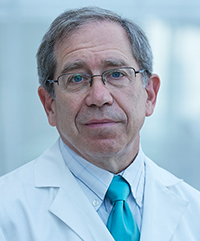 A new program project grant from the National Cancer Institute (NCI) will fund research by the Translational Center of Excellence for Lung Cancer Immunology at the Abramson Cancer Center of the University of Pennsylvania to improve the effectiveness of chimeric antigen receptor (CAR) T cell therapy at fighting solid tumors. The program will specifically evaluate approaches in lung cancer and mesothelioma. The $10.7 million grant will support research for the next five years.
A new program project grant from the National Cancer Institute (NCI) will fund research by the Translational Center of Excellence for Lung Cancer Immunology at the Abramson Cancer Center of the University of Pennsylvania to improve the effectiveness of chimeric antigen receptor (CAR) T cell therapy at fighting solid tumors. The program will specifically evaluate approaches in lung cancer and mesothelioma. The $10.7 million grant will support research for the next five years.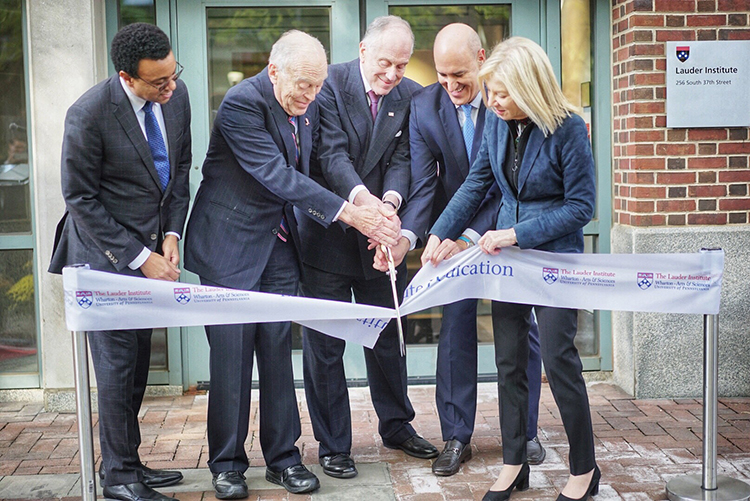





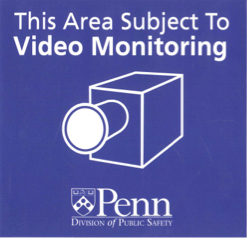
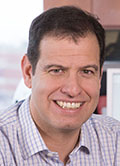 Roger A. Greenberg, professor of cancer biology, is the winner of this year’s Stanley N. Cohen Biomedical Research Award. Dr. Greenberg is internationally recognized as a premier investigator in the highly competitive area of science that links basic DNA repair to cancer. His contributions over the past five years place him within an elite group of basic scientists who have fundamentally advanced a broad range of biological fields and have developed the methodologies necessary to address these issues, several of which were previously intractable. He reported the first direct visualization of the entire process of homologous recombination in a series of landmark papers in Cell and Nature. This evolutionary conserved DNA repair mechanism is the major determinant of cancer etiology and constitutes the basis for telomere maintenance in many cancer types. His most recent work in Nature established the mechanistic basis underlying DNA damage induced inflammatory signaling, an essential component of anti-cancer immunotherapy responses following tumor radiation. As his colleagues noted, “His research is groundbreaking, innovative and eminently deserving of this prestigious recognition.”
Roger A. Greenberg, professor of cancer biology, is the winner of this year’s Stanley N. Cohen Biomedical Research Award. Dr. Greenberg is internationally recognized as a premier investigator in the highly competitive area of science that links basic DNA repair to cancer. His contributions over the past five years place him within an elite group of basic scientists who have fundamentally advanced a broad range of biological fields and have developed the methodologies necessary to address these issues, several of which were previously intractable. He reported the first direct visualization of the entire process of homologous recombination in a series of landmark papers in Cell and Nature. This evolutionary conserved DNA repair mechanism is the major determinant of cancer etiology and constitutes the basis for telomere maintenance in many cancer types. His most recent work in Nature established the mechanistic basis underlying DNA damage induced inflammatory signaling, an essential component of anti-cancer immunotherapy responses following tumor radiation. As his colleagues noted, “His research is groundbreaking, innovative and eminently deserving of this prestigious recognition.”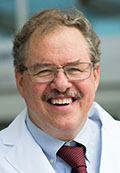 Stephan A. Grupp is professor of pediatrics. He holds the Yetta Deitch Novotny Chair at CHOP and directs the Cell Therapy and Transplant Section in the Division of Oncology. In collaboration with his colleagues at Penn, Dr. Grupp and his team treated the first pediatric patient with CAR T cell therapy at CHOP in 2012. When life-threatening complications resulted due to cytokine release syndrome, the patient’s life was saved by prompt administration of the IL-6 receptor blocking monoclonal antibody tocilizumab, which revolutionized the field of cell therapy. Dr. Grupp and his colleagues in the cell therapy group at CHOP continue to enroll patients with a high degree of safety and a 94% complete remission (CR) rate in patients with refractory and multiply relapsed ALL. Dr. Grupp was also the first person to treat a patient with an FDA-approved cell therapy in September 2017. In addition to his “complete commitment to improving cure rates for childhood cancers,” his colleagues describe him as “a terrific teacher, a wonderful and compassionate clinician, and an extremely successful mentor.”
Stephan A. Grupp is professor of pediatrics. He holds the Yetta Deitch Novotny Chair at CHOP and directs the Cell Therapy and Transplant Section in the Division of Oncology. In collaboration with his colleagues at Penn, Dr. Grupp and his team treated the first pediatric patient with CAR T cell therapy at CHOP in 2012. When life-threatening complications resulted due to cytokine release syndrome, the patient’s life was saved by prompt administration of the IL-6 receptor blocking monoclonal antibody tocilizumab, which revolutionized the field of cell therapy. Dr. Grupp and his colleagues in the cell therapy group at CHOP continue to enroll patients with a high degree of safety and a 94% complete remission (CR) rate in patients with refractory and multiply relapsed ALL. Dr. Grupp was also the first person to treat a patient with an FDA-approved cell therapy in September 2017. In addition to his “complete commitment to improving cure rates for childhood cancers,” his colleagues describe him as “a terrific teacher, a wonderful and compassionate clinician, and an extremely successful mentor.” Bruce L. Levine, Barbara and Edward Netter Professor in Cancer Gene Therapy, was recruited to Penn in 1999 to establish a pilot cellular therapy development, manufacturing and testing facility. He successfully designed, built, outfitted and qualified spaces for the Clinical Cell and Vaccine Production Facility (CVPF). The seminal efforts of Dr. Levine and his CVPF team in translating research findings into clinical trials of technologies tested in patients are unequaled in academia, with more than 1,200 patients treated at HUP and CHOP in various cancers and HIV with engineered T cells and with dendritic cells. Among the firsts for Dr. Levine and his team were the first use of a lentiviral vector for gene delivery in humans, the first gene editing trial (zinc finger nucleases to create HIV-resistant T cells), the first use of a lentiviral vector in cancer, and technology transfer enabling Novartis manufacturing for the first two global FDA registrational trials of CAR T cells. One colleague noted, “It would not have been possible to have bridged the translational ‘Valley of Death’ without the efforts of Dr. Levine integrating efforts among researchers, clinicians and translational scientists.”
Bruce L. Levine, Barbara and Edward Netter Professor in Cancer Gene Therapy, was recruited to Penn in 1999 to establish a pilot cellular therapy development, manufacturing and testing facility. He successfully designed, built, outfitted and qualified spaces for the Clinical Cell and Vaccine Production Facility (CVPF). The seminal efforts of Dr. Levine and his CVPF team in translating research findings into clinical trials of technologies tested in patients are unequaled in academia, with more than 1,200 patients treated at HUP and CHOP in various cancers and HIV with engineered T cells and with dendritic cells. Among the firsts for Dr. Levine and his team were the first use of a lentiviral vector for gene delivery in humans, the first gene editing trial (zinc finger nucleases to create HIV-resistant T cells), the first use of a lentiviral vector in cancer, and technology transfer enabling Novartis manufacturing for the first two global FDA registrational trials of CAR T cells. One colleague noted, “It would not have been possible to have bridged the translational ‘Valley of Death’ without the efforts of Dr. Levine integrating efforts among researchers, clinicians and translational scientists.” David L. Porter, Jodi Fisher Horowitz Professor in Leukemia Care Excellence, specializes in hematopoietic stem cell transplantation and cellular immunotherapy as well as the care of patients with acute and chronic leukemia. He presently serves as director of the Cell Therapy and Transplant program. Dr. Porter was the translational and clinical leader in developing the program using CAR T cells to treat hematologic malignancies. He developed the first clinical trials at Penn and treated the first patient with anti-CD19 CAR T cells in 2010. Since that time, his group has treated over 300 patients with CAR T cells developed and manufactured at Penn that have shown remarkable outcomes in patients with far advanced and refractory B cell cancers such as ALL, CLL and non-Hodgkin’s lymphoma. In addition to his academic achievements, Dr. Porter is an outstanding clinician, of whom it was noted, “is creative, courageous, humble, compassionate and an exemplary physician with the highest ethical and moral principles.”
David L. Porter, Jodi Fisher Horowitz Professor in Leukemia Care Excellence, specializes in hematopoietic stem cell transplantation and cellular immunotherapy as well as the care of patients with acute and chronic leukemia. He presently serves as director of the Cell Therapy and Transplant program. Dr. Porter was the translational and clinical leader in developing the program using CAR T cells to treat hematologic malignancies. He developed the first clinical trials at Penn and treated the first patient with anti-CD19 CAR T cells in 2010. Since that time, his group has treated over 300 patients with CAR T cells developed and manufactured at Penn that have shown remarkable outcomes in patients with far advanced and refractory B cell cancers such as ALL, CLL and non-Hodgkin’s lymphoma. In addition to his academic achievements, Dr. Porter is an outstanding clinician, of whom it was noted, “is creative, courageous, humble, compassionate and an exemplary physician with the highest ethical and moral principles.” David S. Mandell, professor of mental health services research in psychiatry, is the winner of this year’s Samuel Martin Health Evaluation Sciences Award. Dr. Mandell is the foremost international expert on the organization, financing and delivery of health-care and education services for children with autism, and he is a national expert in implementation science in mental health. A major focus of his research has been to identify and improve racial and ethnic disparities in the identification and care of children with autism. His more recent policy research evaluates the autism insurance mandates that many states have enacted, which resulted in an increase in community services and a reduction in psychiatric hospitalizations. His work has demonstrated that intensive early intervention for children with autism results in substantial cost savings in just a few years. His colleagues said of him, “He has been tireless in exhorting policy makers, researchers, practitioners and advocates to improve care for those who are most vulnerable. Indeed, David Mandell is a vector and vessel for positive change in the care of children with autism.”
David S. Mandell, professor of mental health services research in psychiatry, is the winner of this year’s Samuel Martin Health Evaluation Sciences Award. Dr. Mandell is the foremost international expert on the organization, financing and delivery of health-care and education services for children with autism, and he is a national expert in implementation science in mental health. A major focus of his research has been to identify and improve racial and ethnic disparities in the identification and care of children with autism. His more recent policy research evaluates the autism insurance mandates that many states have enacted, which resulted in an increase in community services and a reduction in psychiatric hospitalizations. His work has demonstrated that intensive early intervention for children with autism results in substantial cost savings in just a few years. His colleagues said of him, “He has been tireless in exhorting policy makers, researchers, practitioners and advocates to improve care for those who are most vulnerable. Indeed, David Mandell is a vector and vessel for positive change in the care of children with autism.”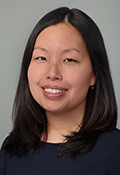 Sunny Shin, associate professor of microbiology, is the winner of this year’s Michael S. Brown New Investigator Research Award. Dr. Shin is an internationally recognized expert known for her research at the interface of immunology and bacterial pathogenesis. She launched an impressive research program at Penn on the dynamic interactions between the respiratory pathogen Legionella pneumophila and the innate immune system, and her lab holds promise for novel approaches to treat infection and improve vaccine design. Dr. Shin has broadened her work to encompass additional intracellular pathogens, including Salmonella, which is responsible for diarrheal diseases causing severe morbidity and mortality worldwide, and Coxiella burnettii, the causative agent of Q-fever and a highly infectious pathogen that many fear is being actively developed as a biological weapon. As one colleague noted, “Her research has the potential to improve health across a broad spectrum of disease. She has infectious enthusiasm that excites those around her. Her research program is an integral part of Penn’s long-term commitment to furthering microbiology research in areas maximally influential for improving human health.”
Sunny Shin, associate professor of microbiology, is the winner of this year’s Michael S. Brown New Investigator Research Award. Dr. Shin is an internationally recognized expert known for her research at the interface of immunology and bacterial pathogenesis. She launched an impressive research program at Penn on the dynamic interactions between the respiratory pathogen Legionella pneumophila and the innate immune system, and her lab holds promise for novel approaches to treat infection and improve vaccine design. Dr. Shin has broadened her work to encompass additional intracellular pathogens, including Salmonella, which is responsible for diarrheal diseases causing severe morbidity and mortality worldwide, and Coxiella burnettii, the causative agent of Q-fever and a highly infectious pathogen that many fear is being actively developed as a biological weapon. As one colleague noted, “Her research has the potential to improve health across a broad spectrum of disease. She has infectious enthusiasm that excites those around her. Her research program is an integral part of Penn’s long-term commitment to furthering microbiology research in areas maximally influential for improving human health.”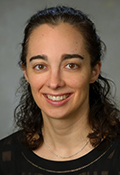 Alexis Ogdie-Beatty, assistant professor of medicine at the HUP, is the recipient of this year’s Marjorie A. Bowman New Investigator Research Award. Dr. Ogdie-Beatty’s research focuses on improving outcomes in psoriatic arthritis (PsA) through population-science and patient-centered research methods. The mission of her program is to accelerate diagnosis; increase the focus on meaningful, patient-centered outcomes; broaden the patient population studied; and develop and advance methods for precision medicine. Much of Dr. Ogdie-Beatty’s work over the past five years has centered on identifying common comorbidities among patients with PsA and understanding the implications of concomitant conditions in the management of PsA. Dr. Ogdie-Beatty’s colleagues noted, “... she has maintained her focus on improving the lives of patients with PsA ... addressing fundamental problems in diagnosis and management of PsA. She is nationally and internationally recognized for pioneering these efforts. She is an outstanding physician-scientist, and we can think of no one more deserving of this award.”
Alexis Ogdie-Beatty, assistant professor of medicine at the HUP, is the recipient of this year’s Marjorie A. Bowman New Investigator Research Award. Dr. Ogdie-Beatty’s research focuses on improving outcomes in psoriatic arthritis (PsA) through population-science and patient-centered research methods. The mission of her program is to accelerate diagnosis; increase the focus on meaningful, patient-centered outcomes; broaden the patient population studied; and develop and advance methods for precision medicine. Much of Dr. Ogdie-Beatty’s work over the past five years has centered on identifying common comorbidities among patients with PsA and understanding the implications of concomitant conditions in the management of PsA. Dr. Ogdie-Beatty’s colleagues noted, “... she has maintained her focus on improving the lives of patients with PsA ... addressing fundamental problems in diagnosis and management of PsA. She is nationally and internationally recognized for pioneering these efforts. She is an outstanding physician-scientist, and we can think of no one more deserving of this award.”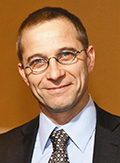 Amit Bar-Or, Melissa and Paul Anderson President’s Distinguished Professor, is the winner of this year’s Lady Barbara Colyton Prize for Autoimmune Research. Dr. Bar-Or is recognized as an outstanding and innovative clinician-scientist and world expert in autoimmunity, particularly of the central nervous system. His research focuses on understanding principles of immune regulation, elucidation of effector and regulatory mechanisms of distinct immune cell (principally T cell, B cell and myeloid cell) subsets in CNS inflammatory disease, immune reconstitution and neuro-immune interactions. In addition to contributing a body of research that has provided both rationale and impetus for therapeutically targeting B cells in patients with autoimmune diseases, Dr. Bar-Or has played a key leadership role in multiple clinical trials leading to the approval of B cell-depleting therapy in patients with Multiple Sclerosis (MS). Dr. Bar-Or remains a highly regarded clinician who is widely sought-after for his expertise and the high caliber of his care of MS patients. One colleague said of him, “The University of Pennsylvania has been immeasurably enriched by Dr. Bar-Or’s recruitment. I cannot imagine a more highly qualified candidate for the Lady Barbara Colyton Prize.”
Amit Bar-Or, Melissa and Paul Anderson President’s Distinguished Professor, is the winner of this year’s Lady Barbara Colyton Prize for Autoimmune Research. Dr. Bar-Or is recognized as an outstanding and innovative clinician-scientist and world expert in autoimmunity, particularly of the central nervous system. His research focuses on understanding principles of immune regulation, elucidation of effector and regulatory mechanisms of distinct immune cell (principally T cell, B cell and myeloid cell) subsets in CNS inflammatory disease, immune reconstitution and neuro-immune interactions. In addition to contributing a body of research that has provided both rationale and impetus for therapeutically targeting B cells in patients with autoimmune diseases, Dr. Bar-Or has played a key leadership role in multiple clinical trials leading to the approval of B cell-depleting therapy in patients with Multiple Sclerosis (MS). Dr. Bar-Or remains a highly regarded clinician who is widely sought-after for his expertise and the high caliber of his care of MS patients. One colleague said of him, “The University of Pennsylvania has been immeasurably enriched by Dr. Bar-Or’s recruitment. I cannot imagine a more highly qualified candidate for the Lady Barbara Colyton Prize.”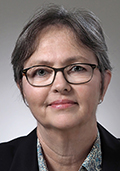 Judy A. Shea, professor of medicine at HUP and associate dean of medical education research, is the recipient of this year’s Arthur Asbury Outstanding Faculty Mentor Award. Dr. Shea works with faculty and fellows to design and evaluate research projects and directs the evaluation of the medical school curriculum and faculty. She is a tireless mentor for faculty and trainees, providing opportunities, introductions, advice about how to complete a project or write a grant, make a tactical career move, get promoted, navigate difficult personal times, edit a CV or find the right work/home life balance. A colleague said of her, “Judy gives the most honest and practical advice around, which truly distinguishes her as a mentor.” Another colleague and mentee said, “She helps people make the choices that are correct for them and recognizes the value of many different career trajectories. For 19 years I have been turning to Judy for advice and she has always been there. Once by your side she is always by your side. She is a mentor par excellence.”
Judy A. Shea, professor of medicine at HUP and associate dean of medical education research, is the recipient of this year’s Arthur Asbury Outstanding Faculty Mentor Award. Dr. Shea works with faculty and fellows to design and evaluate research projects and directs the evaluation of the medical school curriculum and faculty. She is a tireless mentor for faculty and trainees, providing opportunities, introductions, advice about how to complete a project or write a grant, make a tactical career move, get promoted, navigate difficult personal times, edit a CV or find the right work/home life balance. A colleague said of her, “Judy gives the most honest and practical advice around, which truly distinguishes her as a mentor.” Another colleague and mentee said, “She helps people make the choices that are correct for them and recognizes the value of many different career trajectories. For 19 years I have been turning to Judy for advice and she has always been there. Once by your side she is always by your side. She is a mentor par excellence.”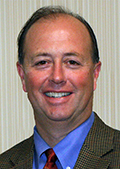 Gregory G. Ginsberg is the winner of this year’s Louis Duhring Outstanding Clinical Specialist Award. Dr. Ginsberg is professor of medicine at HUP and executive director of endoscopic services, UPHS. His clinical practice focuses on new technique development and new technology assessment as it applies to endoscopic management of digestive tract, biliary and pancreatic diseases. He has pioneered a number of new procedures, including developing ablative approaches to managing Barrett’s Esophagus. Dr. Ginsberg is sought after by physicians who refer their patients and family members to his expert and comprehensive care. One colleague said, “…when I have a patient in need, particularly with a tough medical situation, Dr. Ginsberg is always the first person I call.” Another said of him, “His delivery of care is coupled to unremitting compassion, humanism and professionalism. Each patient feels a covenant with him that is unique.”
Gregory G. Ginsberg is the winner of this year’s Louis Duhring Outstanding Clinical Specialist Award. Dr. Ginsberg is professor of medicine at HUP and executive director of endoscopic services, UPHS. His clinical practice focuses on new technique development and new technology assessment as it applies to endoscopic management of digestive tract, biliary and pancreatic diseases. He has pioneered a number of new procedures, including developing ablative approaches to managing Barrett’s Esophagus. Dr. Ginsberg is sought after by physicians who refer their patients and family members to his expert and comprehensive care. One colleague said, “…when I have a patient in need, particularly with a tough medical situation, Dr. Ginsberg is always the first person I call.” Another said of him, “His delivery of care is coupled to unremitting compassion, humanism and professionalism. Each patient feels a covenant with him that is unique.”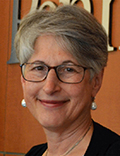 Ann L. Steiner, clinical professor of obstetrics and gynecology, is the winner of this year’s Sylvan Eisman Outstanding Primary Care Physician Award. Dr. Steiner practices ambulatory gynecology with a focus on preventive care and menopause. For 20 years, she has served a loyal patient population at Penn Health for Women at Radnor who give her glowing reviews, such as “She is truly the best doctor I have ever had examine me. She is patient, kind, extremely knowledgeable and I never feel rushed when I am in her care.” She spends one day a week in the Helen O. Dickens Center for Women, where she founded the Menopause Clinic, which fills a need for service to mid- and late-life women, as well as filling the void in resident menopause education. She spearheaded the Penn LARC Project, which ensured that all women delivering at HUP would have access to LARC after giving birth, and led to change in Pennsylvania Medicaid coverage for LARC. Her current endeavor is The Access Project, supporting statewide access to all reproductive health. As one colleague said of her, “Dr. Steiner’s career has been truly remarkable … her energy has only increased over the years as she cultivates her passions and shares her joy in her work.”
Ann L. Steiner, clinical professor of obstetrics and gynecology, is the winner of this year’s Sylvan Eisman Outstanding Primary Care Physician Award. Dr. Steiner practices ambulatory gynecology with a focus on preventive care and menopause. For 20 years, she has served a loyal patient population at Penn Health for Women at Radnor who give her glowing reviews, such as “She is truly the best doctor I have ever had examine me. She is patient, kind, extremely knowledgeable and I never feel rushed when I am in her care.” She spends one day a week in the Helen O. Dickens Center for Women, where she founded the Menopause Clinic, which fills a need for service to mid- and late-life women, as well as filling the void in resident menopause education. She spearheaded the Penn LARC Project, which ensured that all women delivering at HUP would have access to LARC after giving birth, and led to change in Pennsylvania Medicaid coverage for LARC. Her current endeavor is The Access Project, supporting statewide access to all reproductive health. As one colleague said of her, “Dr. Steiner’s career has been truly remarkable … her energy has only increased over the years as she cultivates her passions and shares her joy in her work.” Shreya Kangovi is the recipient of the Luigi Mastroianni, Jr., Clinical Innovator Award. Dr. Kangovi is assistant professor of medicine at HUP and founding executive director of the Penn Center for Community Health Workers. She has advanced health care across the nation through the conception, development, testing, implementation and national dissemination of IMPaCT, a structured program of community health workers with a demonstrated ability to reduce hospital admissions and health-care costs among low-income populations. Dr. Kangovi’s software, manuals and training programs have been accessed by over 1,000 organizations across the US, including health centers, city jails, rural health systems and other academic medical centers. Penn Medicine has adopted IMPaCT as its strategy for population health management, delivering the intervention to approximately 7,000 patients to date. One colleague noted, “Her passionate determination to improve the lives of those with complex needs—those patients who also drive the majority of costs—has already achieved measurable outcomes and national prominence, and has set her on a clear path towards transforming the quality and value of care for at risk populations in our community and beyond.”
Shreya Kangovi is the recipient of the Luigi Mastroianni, Jr., Clinical Innovator Award. Dr. Kangovi is assistant professor of medicine at HUP and founding executive director of the Penn Center for Community Health Workers. She has advanced health care across the nation through the conception, development, testing, implementation and national dissemination of IMPaCT, a structured program of community health workers with a demonstrated ability to reduce hospital admissions and health-care costs among low-income populations. Dr. Kangovi’s software, manuals and training programs have been accessed by over 1,000 organizations across the US, including health centers, city jails, rural health systems and other academic medical centers. Penn Medicine has adopted IMPaCT as its strategy for population health management, delivering the intervention to approximately 7,000 patients to date. One colleague noted, “Her passionate determination to improve the lives of those with complex needs—those patients who also drive the majority of costs—has already achieved measurable outcomes and national prominence, and has set her on a clear path towards transforming the quality and value of care for at risk populations in our community and beyond.” 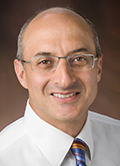 Ron Keren, professor of pediatrics and epidemiology at PSOM and an attending physician at CHOP, is the winner of this year’s Alfred Stengel Health System Champion Award. Dr. Keren is the Vice President of Quality and Chief Quality Officer at CHOP. His Office of Clinical Quality Improvement supports clinical departments throughout CHOP’s health systems in improving the safety, effectiveness, efficiency and experience of care delivered to children. In the five years since its inception, the Office has supported hundreds of improvement projects, including The Clinical Pathways Program, The High Value Prescribing Program, The Keeping Kids Out of the Hospital Initiative and the CHOP Improvement Leaders Course. Dr. Keren finds inspiration for his research and quality improvement projects from his work caring for children hospitalized on CHOP’s general pediatric inpatient service. One colleague said of him, “He has brought scientific principles and measurement to the bedside, and as a result our clinicians can assure that the next generation of children will enjoy the benefits of an integrated, high-functioning health-care system aimed at wellness prevention and continued innovation to manage diseases more effectively.”
Ron Keren, professor of pediatrics and epidemiology at PSOM and an attending physician at CHOP, is the winner of this year’s Alfred Stengel Health System Champion Award. Dr. Keren is the Vice President of Quality and Chief Quality Officer at CHOP. His Office of Clinical Quality Improvement supports clinical departments throughout CHOP’s health systems in improving the safety, effectiveness, efficiency and experience of care delivered to children. In the five years since its inception, the Office has supported hundreds of improvement projects, including The Clinical Pathways Program, The High Value Prescribing Program, The Keeping Kids Out of the Hospital Initiative and the CHOP Improvement Leaders Course. Dr. Keren finds inspiration for his research and quality improvement projects from his work caring for children hospitalized on CHOP’s general pediatric inpatient service. One colleague said of him, “He has brought scientific principles and measurement to the bedside, and as a result our clinicians can assure that the next generation of children will enjoy the benefits of an integrated, high-functioning health-care system aimed at wellness prevention and continued innovation to manage diseases more effectively.”


